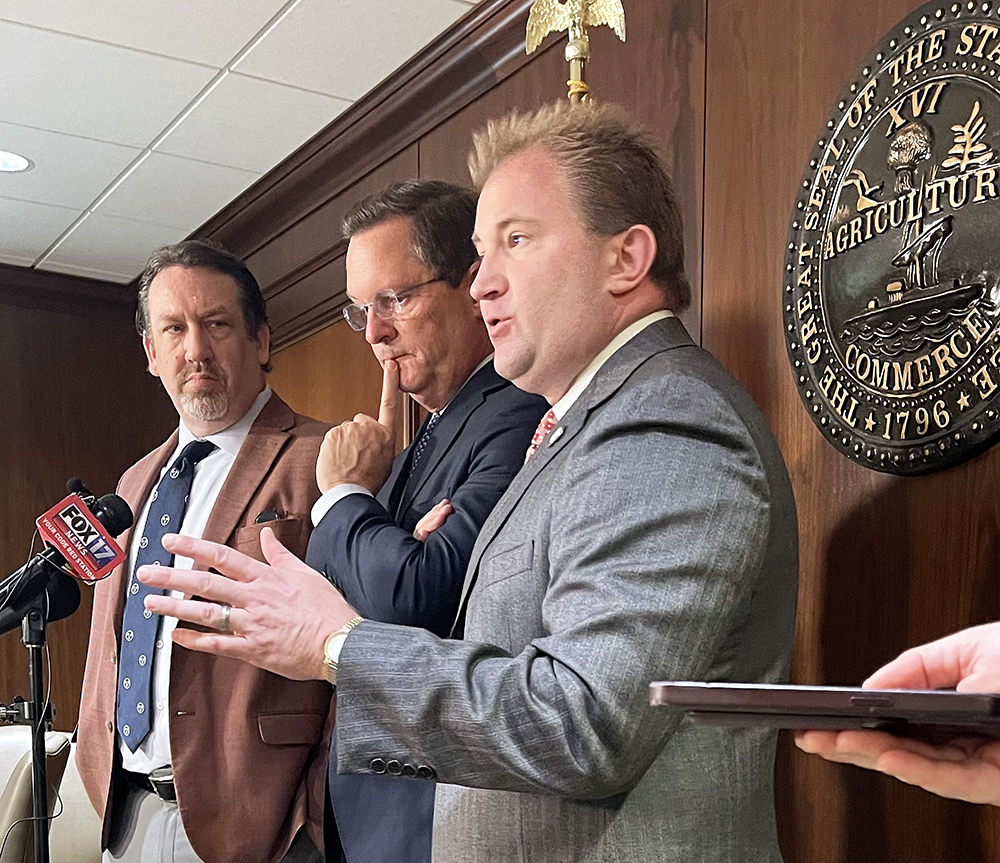NASHVILLE — For many years I would make a point of going to the state Capitol during the spring months to look in on the General Assembly. There were times when I was there almost from the opening gavel to the legislative session’s close.
This was especially true during the years of the Income Tax Wars on Capitol Hill, roughly 1999 to 2001. This was a time of protracted conflict arising from Republican Governor Don Sundquist’s heroic if doomed efforts — in tandem, more or less, with elements of the assembly’s Democratic leadership — to modernize Tennessee’s archaic tax structure in a season of severe revenue shortage.
The climax would be Tennessee’s version of what happened in D.C. on January 6, 2021 — a riot in which the state Capitol was invaded by masses of protesters who broke windows, pounded on the heavy oaken doors of the locked legislative chambers, and thoroughly intimidated the trapped lawmakers who had been on the verge of enacting a state income tax.
The assault came about through the efforts of then-state Senator Marsha Blackburn, who notified her allies among right-wing broadcasters who in turn summoned the crowds.
That occasion, during which I was barricaded in the Senate chamber along with the cowed solons themselves, was one of many memorable moments of my annual drop-ins on Capitol Hill.
I was there again last Thursday to spend time with my daughter Julia, who now covers state politics for the Tennessee Journal, a newsletter I used to serve as contributing editor.
We started out in the media box of the state Senate. Things had barely gotten started when, in the wake of a floor appearance by cosplayers wearing Revolutionary War outfits, state Senator Brent Taylor of Shelby County rose to identify me to his fellow senators as someone who “covered the American Revolution.”
He went on to mention a staff-written MEMernet item in the previous week’s Flyer which took him to task for what he called “spicy remarks.” Mistakenly assuming I was the author, he swore he would “not apologize” for them.
Somehow, in the ad hoc role of introduced visitor, I got a round of applause out of all that.
Later I joined Julia on the House side, where the well-remembered “Tennessee Three” of a 2023 gun-safety debate — Democratic representatives Justin Jones of Nashville, Gloria Johnson of Knoxville, and Justin Pearson of Memphis — were preparing to take on HB222, a GOP bill formally entitled (not making this up) the “Dismantle DEI Act,” an apt description of the bill’s intent to disallow government efforts to “increase diversity, equity, or inclusion in the workplace.”
Justin Jones: “This bill is about undoing the progress made in the civil rights movement. … This bill is racist; it’s sexist; it’s ableist; it’s religious discrimination as well. … [We should] rename this bill for what it is — the Dismantle Civil Rights Act.”
Gloria Johnson wanted to rename the bill “the White Fragility Act.”
Justin Pearson never even made it to the well. He ended up pounding a rolled-up sheet of paper in his hand in frustration when the supermajority Republicans called the question, and by a vote of 73-24 abruptly passed the bill and terminated debate.
In a press availability after the session, the body’s GOP leaders defended the outcome.
Said Majority Leader William Lamberth: “If DEI stood for diversity, excellence, and inclusion, it’d be perfectly fine, but it stands for diversity, equity, and inclusion, which is a communist, socialist principle that is racist at its very core.”
The clincher was provided by Republican caucus chair Jeremy Faison who said straight-facedly: “Dr. King said it the best when he said that he wants people to judge us on the content of our character. The content of your character would be the equity portion.”
And with that the penultimate week of the 2025 legislative session was over.
